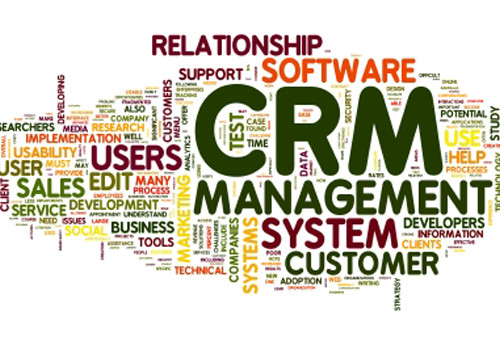Europe and related markets continue to struggle to overcome the economic stagnation that began with the recession of 2008 and individual businesses are in the thick of the fight to achieve recovery, battling an unprecedented productivity crisis. To maintain success and transform their fortunes in the face of tough market conditions, many companies are taking matters into their own hands and turning to Customer Relationship Management (CRM) to boost output rates.
Research commissioned by Maximizer Software found that productivity in Europe and related markets continues to languish since the height of the recession – indeed, the Eurostat Labour Productivity Index revealed that worker output has declined and then stagnated since 2008. The UK Office for National Statistics reported in late 2012 that productivity had fallen to 3.7% below its pre-downturn peak.
Many businesses are not, however, simply waiting for governments to find a solution to the productivity crisis – they are seeking to create their own opportunities to boost employee output rates by implementing or upgrading CRM systems. A recent Gartner report showed that CRM market grew by 12% worldwide in 2012 – three times the average for all enterprise software categories.
The research also showed that, as businesses extend their operations to maintain revenues in the face of an increasingly tough business climate – moving into new markets and expanding their geographical reach – they are concentrating their hiring efforts on sales, marketing and customer service in order to retain existing clients and win new prospects. These are areas where efficiency can quickly be improved at a relatively low cost by applying or upgrading a firm’s CRM technology.
Overall, the immediate access to customer data, the streamlining of operations and the comprehensive view of the business for management that CRM solutions provide is critical for companies aiming to raise productivity and in turn, profitability. Research from AMI Partners in 2007 showed that companies with CRM systems generated revenues that were over 260% higher overall, and over 140% higher per employee, than those without.
Furthermore, ensuring that a CRM platform is up-to-date with the latest technology is essential to such success. A 2012 Nucleus Research survey of CRM decision makers found that organisations can significantly increase returns on their CRM investments by adding mobile and social media capabilities. Nucleus found an average productivity gain of 14.6% from mobile capabilities and 11.8% from social.
Marketing is often the first area to suffer when budgets are tight, but one of the areas that can most benefit from effective CRM technology. Segmentation is vital for effective marketing and yet is all but impossible to achieve without a CRM solution. Having access to historical customer data enables a company to identify existing customers who are most likely to buy a new product and when they are likely to do so based on their purchase history, responses to communications and other data.
A CRM system can generate and send automated emails – messages triggered by purchases, seasonal offers, renewal notices and events – and the results can be tracked. A CRM platform enables the marketing department to monitor campaigns and measure their effectiveness – with the resulting fine-tuning improving return on investment.
Effective segmentation and automation not only provides more efficient support for upselling and cross-selling efforts – it can be used to create profiles to identify the best customers, so a company can target lookalikes. Marketing can then produce relevant, well-timed and personalised communications, producing qualified leads that can then be passed onto the sales team.
Indeed, linking successful marketing activities to sales follow-ups can be a crucial element of successful CRM implementation. The more qualified the leads and the less time wasted by sales representatives, the better the productivity. A CRM platform helps companies to keep their sales pipeline primed and enables them to view, organise and retrieve all the information they need to make a positive impression on an existing or potential customer.
The sales force automation provided by a CRM system gives sales people the ability to create a proposal, email it to the right contact and automatically record it on the CRM system – all with the press of a button. Contact organisation, opportunity management, lead tracking, report generating and sales forecasting can all be streamlined by the automation a CRM system provides.
The spread of mobile technology and the ability to use it to tap into CRM systems has given companies the tools to improve the efficiency of sales teams. CRM web accessibility enables sales teams to update customer information on the go and to check the latest situation with customers before visiting them – especially where there is an outstanding service issue.
Having the CRM technology to enable service representatives to keep information up-to-date in the field is also essential to improving productivity. An advanced CRM system is critical to good customer service, as it provides company reps with a complete view of any problems and interactions when dealing with a customer.
It is clear that, for any business aiming to improve productivity in marketing, sales and customer service, a fit-for-purpose CRM platform is vital. Those firms with no CRM infrastructure in place should take the step of implementing a system to boost the productivity of customer-facing staff, while firms that do have a platform in place should make sure they have the most recent features, such as mobile capability, if they are to lift employee output – and gain a competitive edge.






